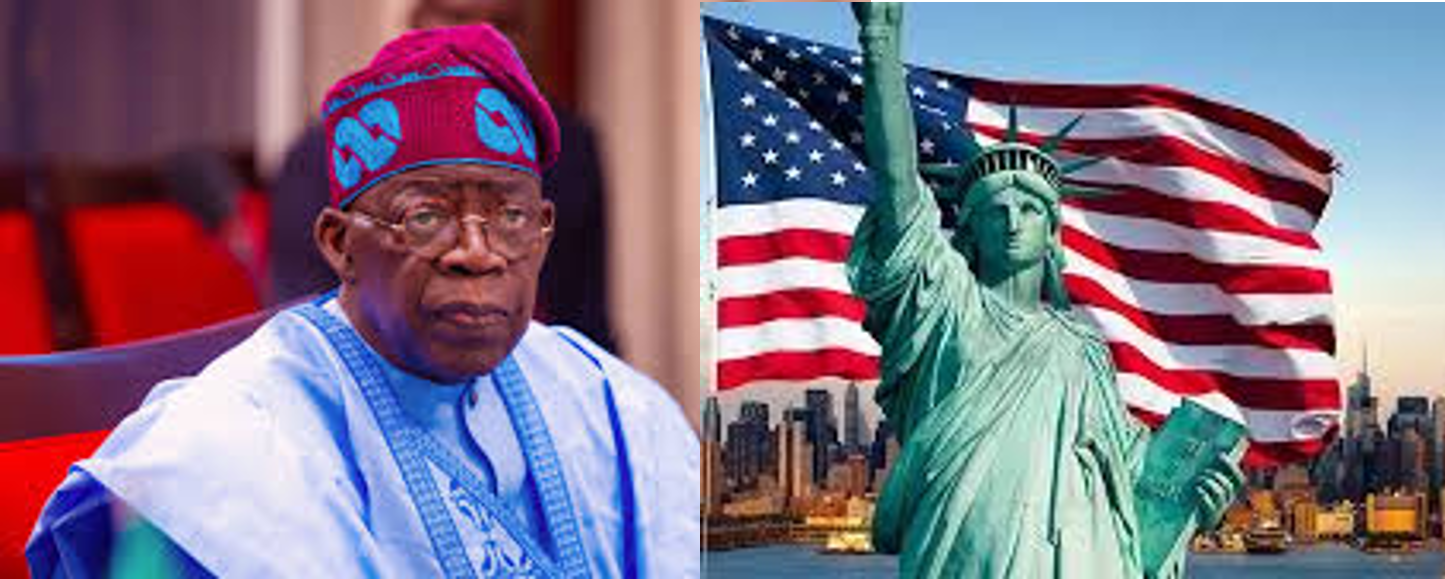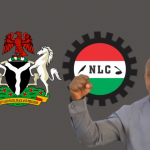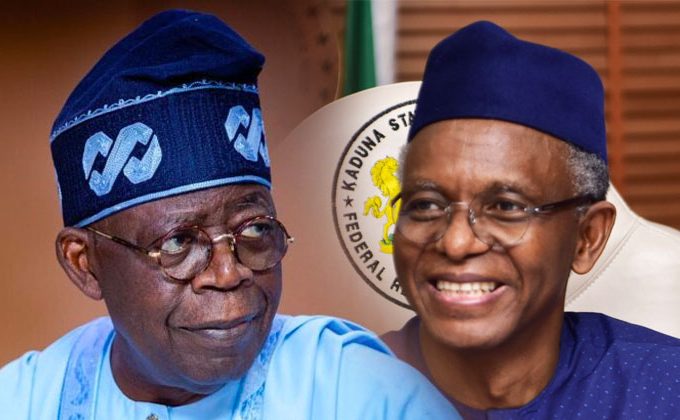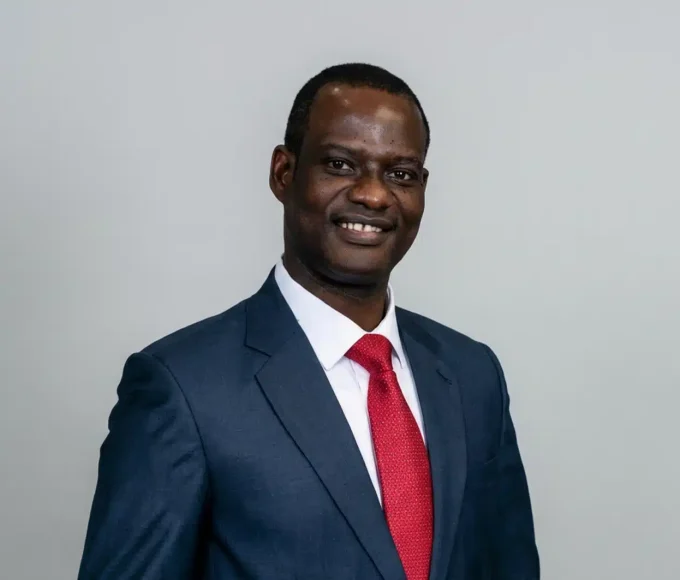
The Kissinger Report: Declassified U.S. Plan To Control Nigeria’s Population, Resources And How Tinubu Is Helping Finish The Job

In 1974, deep inside the corridors of U.S. power, a secret policy paper was drafted that would quietly shape decades of American engagement with Nigeria. Known as the Kissinger Report or National Security Study Memorandum 200 (NSSM 200), it was no ordinary diplomatic note; it was a blueprint.
Commissioned by then-Secretary of State Henry Kissinger, the report identified Nigeria as one of 13 key countries whose growing populations and resource wealth had the potential to affect U.S. economic and security interests.
If Nigeria’s people grew too numerous, they might consume too much of their own oil, gas, and mineral resources, which Washington considered essential for its own prosperity.
The report concluded that population control was not just a humanitarian concern; it was a matter of U.S. national security.
At the time, Nigeria’s population was just over 60 million. The report projected rapid growth, a trend it saw not as an achievement of life but as a logistical problem.
Unchecked demographic expansion, it warned, could create instability, divert resources toward domestic needs, and reduce the flow of vital commodities, mainly oil, to the United States.
The solution proposed? Utilise foreign aid, health programmes, and development partnerships to promote fertility reduction and slow population growth in high-risk countries, such as Nigeria.
This wasn’t thoughtfulness. It was resource management, not for Nigeria’s benefit, but for America’s.
The memo touted increased U.S. funding for population-related programmes as both necessary and urgent
Today, the legacy lives on, but with a new, corporate twist.
The Kissinger Report framed foreign assistance as a strategic lever. Aid could be used to encourage population policies, which would involve fewer births and more resources available for export.
Its soft imperialism; disguising resource control as humanitarian outreach, and reducing sovereign nations to the role of resource warehouses for the West.
The plan includes a smaller, weaker Nigeria that is easier to influence, easier to bargain with, and less able to challenge foreign control of its oil, minerals, and markets.
An Investigation by West Africa Weekly reports that Bill & Melinda Gates Foundation, Pfizer, CIFF, USAID, UNFPA, the World Bank, GAVI, and others are flooding sub-Saharan Africa, especially Nigeria, with long-acting contraceptives like Sayana Press injectables, implants, and IUDs. These are cheap, subsidised, and targeted almost to low- and lower-middle-income African nations.
While branded as empowerment, this is a practice fraught with coercion. Contracts include fertility targets and quotas, and programme design is centralised in Western capitals; African researchers and communities are often sidelined.
They call it ‘choice,’ but the only option they push is long-acting contraception. That’s not a choice. That’s pressure. And again: it’s colonisation through health care. Africans are not driving these programmes, they are driving Africans.
The article also highlights ethical lapses where women are being fitted with IUDs or injectables during emergencies or childbirth, with minimal counselling, education on side effects, or informed consent.
Now, in 2025, Nigeria’s population has surged past 220 million. The youth population is massive, yet unemployment is staggering, inflation is eating away at wages, and the naira is in freefall.
Then, President Bola Tinubu, a puppet, entered, whose regime was never to break this cycle, but to deepen Nigeria in the very vulnerabilities the Kissinger Report counted on.
Tinubu’s swift adoption of subsidy removals and currency devaluation follows the playbook of international financial institutions influenced by U.S. policy. These measures have deepened poverty and destroyed domestic purchasing power, making Nigeria more dependent on foreign loans and trade.
Despite local shortages and refining gaps, crude oil continues to be exported in massive quantities. At the same time, refined fuel is imported at premium prices, keeping Nigeria tethered to global market volatility.
His administration has courted Western oil and gas companies with tax breaks and incentives, even as communities in the Niger Delta suffer from pollution, displacement, and economic neglect.
In effect, Tinubu’s policies are helping Washington and its allies secure the very resource flows the Kissinger Report demanded, while leaving Nigerians to bear the economic fallout.
When Washington framed population growth as a threat, it wasn’t to Nigeria’s development, it was to U.S. consumption.
Under Tinubu, the structural imbalances remain as resources flow out, debt obligations pile up, and domestic capacity remains stunted.
The Kissinger Report’s two central goals, to keep Nigeria politically stable enough to produce resources but economically weak enough to remain dependent, are arguably being fulfilled right now.
And the hypocrisy is glaring. The U.S. celebrates its population growth as an economic strength. Still, it treats Nigeria’s youth bulge as a destabilising danger, especially when those young people demand that their oil wealth benefit them first.
Tinubu’s defenders claim his reforms are painful but necessary. But reforms designed in Washington and rubber-stamped in Abuja have a track record where they deepen dependency, privatise profit, and socialise pain.
The Kissinger Report may be 51 years old, but its worldview is alive, and Nigeria’s value lies in what it can ship out, not in what it can build at home. The risk now is that Tinubu’s alignment with foreign economic dictates will lock Nigeria into another generation of underdevelopment and ensure that Washington’s Cold War-era dream of a compliant, resource-rich Nigeria never dies.
The real threat to Nigeria was never its population growth. It was, and remains, the willingness of its leaders to manage that growth in ways that serve outside powers first.
If Nigeria’s leaders don’t break this pattern, the country’s future will remain a footnote in someone else’s strategy paper.
Read More:
- International Trade Union Condemns Nigerian Government’s Move to Criminalise Right to Strike
- Niger’s Tchiani Defies EU, Welcomes Sanctioned Pan-African Activist Nathalie Yamb In Niamey
About The Author
18 Comments
Leave a Reply Cancel reply
Related Articles
Tinubu Deducts N100bn Monthly From Federation Account Without Approval El-Rufai Alleges Says Action Deserves Impeachment
Former Kaduna State Governor Nasir El-Rufai has launched a blistering attack on...
ByWest Africa WeeklyJanuary 26, 2026After Taiwo Oyedele’s Denials, Lagos State Activates ‘Power of Substitution’ Under Tinubu-Altered Tax Law, Allowing Authorities to Redirect Payments Without Court Orders
Lagos State has moved to activate a controversial enforcement provision in the...
ByWest Africa WeeklyJanuary 26, 2026Ivory Coast to Buy Unsold Cocoa to Support Farmers
Ivory Coast has announced a government plan to purchase unsold cocoa stock...
ByWest Africa WeeklyJanuary 23, 2026Ghana Moves to Reclaim Kwame Nkrumah’s Former Residence in Guinea
Ghana has embarked on a diplomatic and cultural initiative to reclaim the...
ByWest Africa WeeklyJanuary 23, 2026












Another reason to make me believe that Nigerians still have a long way to go before freedom of all we talk about or point to is 2027 election. Ignorance still showing us shege
Nigerians are indeed doomed 🤦🏿 and when discuss about this one person go say na propaganda
Conspiracy theories
This narrative is nothing new. The truth is that the relationship between the countries in the southern hemisphere and that of the northern is guided by this sort of policy from time immemorial.. An attempt to now say that it is just being implemented by Tinubu’s administration is laughable. All the leaders before Tinubu were all pro-west. Those who contested with Tinubu are pro-west. A leading presidential aspirant in 2027 election is already holding meeting with an Ambassador of a powerful western nation.
I can attest to that Sayana press injectibles, the Jadelle and implanon implants. these contraceptives are given freely at primary health centres. “Kudos to Bill Gates and co.”
Nigeria is a finished commodity.
Nigeria is a finished commodity.
We have a long way to go.
Rhetorics like this is dismissive and unhelpful. The current administration, though may be imperfect in certain aspects, is by exploring alternatives global opportunities, certainly pushing through economic limitations fashioned by the west.
This is incredibly disheartening. It’s a war infact. Bearing in mind the history of Nigeria and where we are today it’s sufficient to say that we have failed as a people. Solution, we need to create new states within to run their resources and on the long run independence from center.
Funny how the country most think are their greatest Aly is actually the culprit behind their suffering. How do we end this, though?
APC used the future and sovereignty of Nigeria as a bargaining chip to get power
The painful part is that most Nigerians are blinded by tribalism and religion, as such, they cant see that they’ve willingly handed themselves to become slaves once again
exactly my bro. tribalism, political figures and low iq kept the african people this way.
This kind of sponsored piece,comes from people who do not with the nation well.The reasoning very nauseating and stupid.Birth control is what the piece condemning.How foolish!.
Let destroy the zoo for them, there is no country called Nigeria. God did not create Nigeria. All we need to do is that we support what we asking for which dissolutions ofNigeria .
And that is another reason they are not talking about Nigeria being in crossroads of falling into a bottomless pit. They are praying and working hard that she falls. And when MNK Talks and Call out the west, they hate him more and instead instructs Nigeria Govt on how or what to do about his case.
only way to defeat the west is by denouncing nigeria as our country and embrace speration. we are doing nothing as one country. we are just cash cows and nothing more. seperate and undo what britian did. the north and yoruba want the one nigeria but the masses are broke.
85% of Nigerians don’t even know what’s happening
All those wishing destruction of Nigeria are at best wasting their time. Nigeria will raise like a phoenix out of fire. Watch this space 🤣🤣🤣